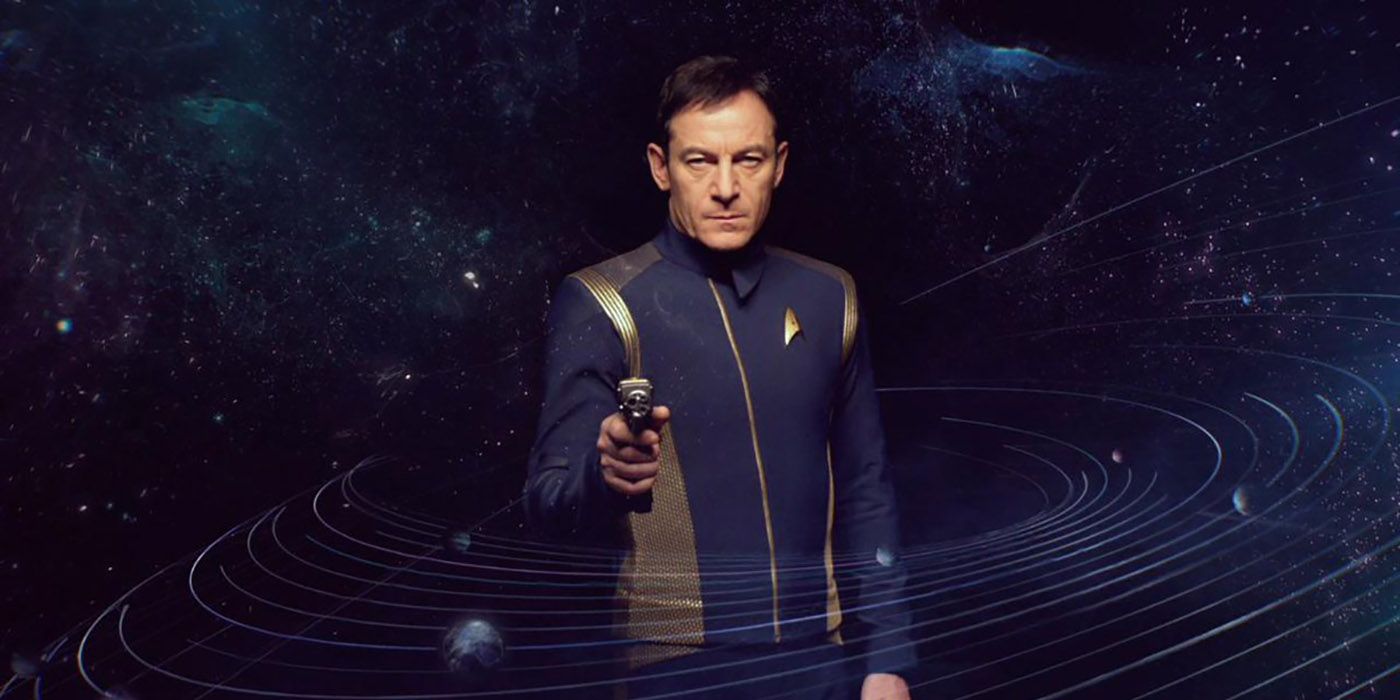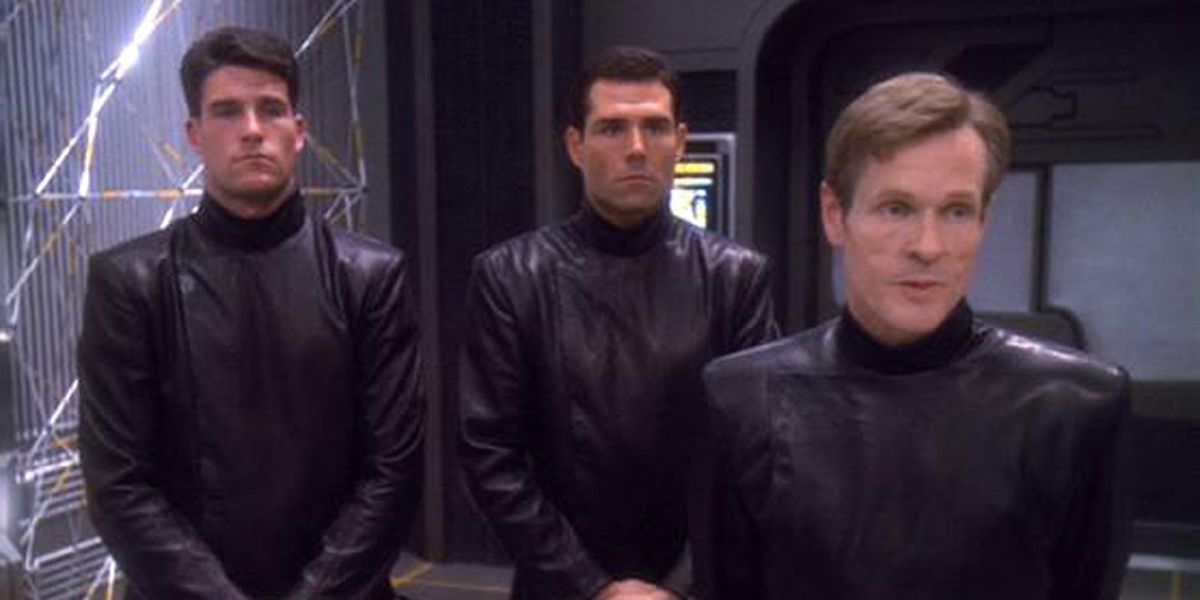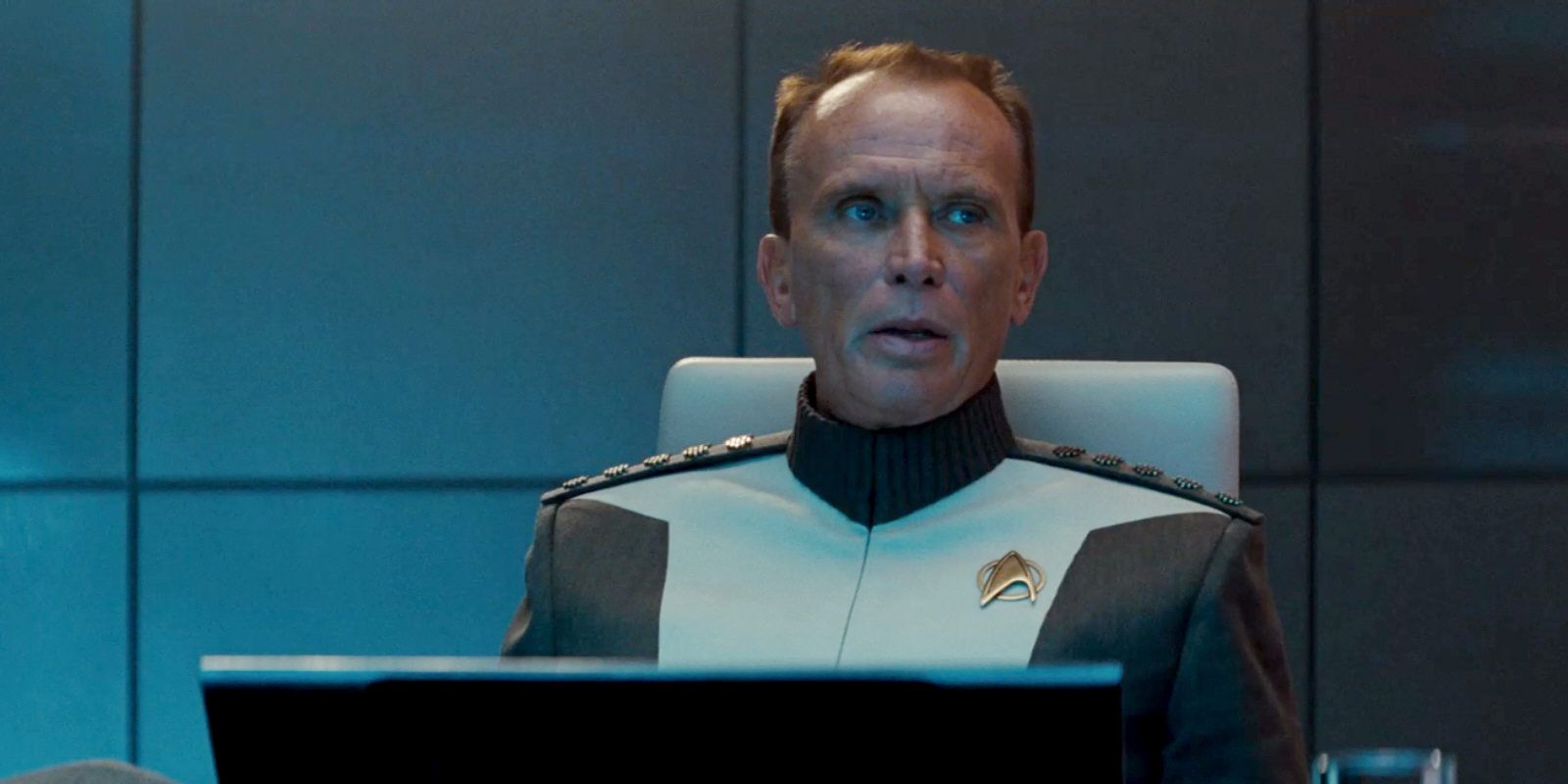Star Trek: Discovery is off to an explosive, surprising start. The CBS All Access series - the first Star Trek television venture since Star Trek: Enterprise was cancelled in 2005 - takes place ten years before the events of the original series, and follows Michael Burnham (Sonequa Martin-Green), a disgraced former Starfleet officer who unwittingly sparks a war with the Klingons, getting her captain killed and ship destroyed in the process. Burnham is convicted of mutiny and sentenced to life imprisonment, but in the series' third episode she improbably finds herself on the USS Discovery, a brand new science vessel under the command of the mysterious Captain Gabriel Lorca (Jason Isaacs). Lorca invites Burnham to join his crew, seeing a keen mind he can exploit for his own ambiguous purposes.
Lorca is clearly a man who has little in common with the more virtuous captains of past Trek series like James Kirk and Jean-Luc Picard. Lorca makes it clear he is willing and able to break any rules necessary to win the war with the Klingons, which on the surface might seem like a betrayal of the basic tenets of Gene Roddenberry's optimistic vision of humanity's future. But dig a little deeper and there are plenty of examples of Starfleet's dark underbelly in the guise of a shadow organization that has existed as long as the Federation: Section 31.
Named after Article 14, Section 31 of the Starfleet Charter, which authorized extraordinary measures in times of extreme threat, Section 31 operated as an autonomous, off the books organization that answered to no one, free to take whatever measures it felt necessary to protect the Federation. The organization was introduced in the Star Trek: Deep Space Nine episode "Inquisition," where Doctor Julian Bashir is accused of being a spy for the Dominion, a sort of dark mirror of the Federation who were engaged in a massive, bloody war with Starfleet and their allies. The Deputy Director of Starfleet Internal Affairs, Luther Sloan, put Bashir through a hellish gauntlet of psychological torture, attempting to derive a confession for a crime he never committed. Sloan would eventually be revealed as an agent of Section 31, simultaneously attempting to clear Bashir and recruit him into the clandestine organization. Bashir refused, appalled that such an organization could exist within the Federation.
Later on in the war, Section 31 developed a disease that would infect the Dominion's lead species, the Founders, which was distributed through Odo, a member of the species who was a Federation ally. Doctor Bashir was able to devise a cure and save both Odo and the rest of his race, but Starfleet's willingness to indulge in outright genocide to win a war raised serious questions about the organization's soul.
Section 31 also played a minor role in Enterprise, where it was revealed Lieutenant Malcom Reed had once been an agent of the organization, and attempted to slow down the investigation around Doctor Phlox's kidnapping by the Klingons at their behest. This ended up being a relatively benevolent endeavor, as Section 31 wanted Doctor Phlox to help the Klingons develop a cure for the augment virus, hoping it would help normalize relations with the Klingon Empire.
Even the alternate reality J. J. Abrams films have explored Section 31, in Star Trek Into Darkness. In the wake of Vulcan's destruction, this version of Section 31 took a more proactive approach, with Admiral Alexander Marcus conspiring to provoke a war with the Klingons by exploiting Khan Noonien Singh and the crew of the SS Botany Bay. That attempt failed when Captain Kirk and the Enterprise thwarted their plans, and Marcus lost control of Khan, who ultimately killed him and presumably crippled that iteration of Section 31.
Whenever a senior member of Starfleet is acting in ways that seem contrary to the ideals of the organization, it's impossible not to consider Section 31. While the secretive nature of the organization would make it nearly impossible for everyone on board the Discovery to be an operative, it seems highly likely that Captain Lorca himself is one. Clearly a man with a hazy moral code and some dark machinations underway, he presents the Discovery's potentially revolutionary research - which would allow starships to go virtually anywhere in a split second - to Burnham as a benevolent tool to both win the war and change the way Starfleet fulfills its exploratory missions in times of peace. But it's impossible to ignore the bigger, darker implications of the technology as well; Section 31 would be able to exploit it to neutralize potential (or imagined) enemies with very little chance of repercussions. It would be a horrifying weapon in the hands of lesser men, who we know for a fact reside in the darker corner of the Federation, unchecked and undeterred.
It's definitely not a certainty yet Lorca is an agent of Section 31; he could simply be a fallible man who's been broken by the horrors of war, who's bending the rules in a noble effort to stop the intergalactic bloodshed. And yet his discussions with his Security Chief, Commander Ellen Landry (Rekha Sharma), are so obviously ominous that they're either hinting at much darker designs for the Discovery or are an ill advised fake out toward bleaker prospects. The latter seems unlikely; Discovery has established the fact that, on some level, it's going to be a trial for Starfleet's heart through the guise of Burnham, a deeply flawed but well intentioned protagonist, easily the most morally compromised in the history of Star Trek. It seems more than a little likely that Burnham will have to confront not only her own shortcomings, but those of the organization to which she has devoted - and at the moment, forfeited - her life.
There would be no greater test for Burnham and her potential redemption than taking on Section 31. The notion of the captain who has seemingly offered her a second chance being an agent of that organization has tremendous dramatic potential, and would offer a compelling narrative that Star Trek has never tackled in such a direct, overt way. Do organizations of peace ultimately give in to their darkest fears and paranoia, or do they rise above them, even in the face of tremendous adversity? We may soon get an answer to that question on the USS Discovery.



